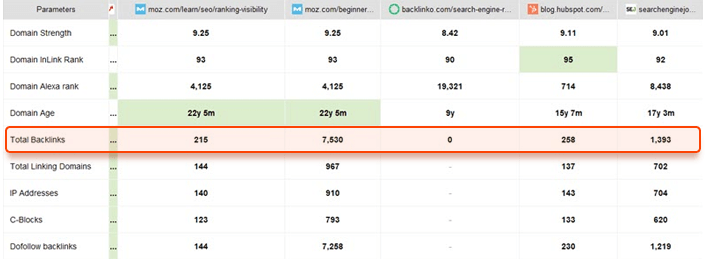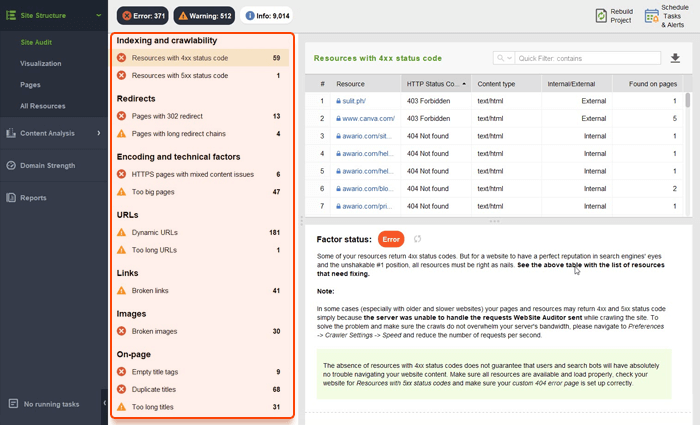For a long time, any SEO campaign could be summed up with two general goals:
Produce better content.
Find quality backlinks.
But 2020 spelled a lot of changes for the SEO world, from the Core Web Vitals update to small things like Google My Business adding a COVID news feature.
The need for great content will never change, but what about backlinks? Link building isn't simple, so is it even worth getting into for a small business that needs to manage its resources more wisely than ever? The short answer: yes, but not too much. But let's dig a little deeper.
Do you need backlinks at all?
Practicing SEO experts love backlinks. Anyone who knows SEO will tell you that having backlinks to your content will improve your chances of ranking. But what none of us can know for certain is how many backlinks you need for what kind of ranking boost.
My suggestion: conduct your own experiment to see how many backlinks are needed to rank in your particular competitive vertical.
Start by googling any term, and grab the top five results from the search engine results page (SERP). Plug those five URLs into a backlink checker (I'm using my own SEO SpyGlass here), and you'll see that most of them do have backlinks.

But it's also pretty obvious that there's no one-to-one correlation between the number of backlinks and the position in search: the top-ranked position for the term only has one-thirtieth of the second result's backlinks. Meanwhile, result number three has a sum total of zero backlinks.
From this mini-experiment, it's evident that you can rank with very few links, and Google will take you at your content's value. But even though a linkless webpage can squeeze into a top three, you shouldn't count on it. On the other hand, there's likely a point of diminishing returns for any link building campaign, so you don't want to go too deep down the rabbit hole. A few solid links (which you might even be able to accumulate naturally!) should do the trick.
Should you focus on domain authority?
There are two main goals of link building:
Scoring new links to specific pages that you want to boost ranking for
Finding new backlinks to your domain in general to increase domain authority
The first one is relatively simple to grok: you try to get links to a specific page so that page moves up in SERP. But what about the second one? Increased domain authority has long been considered one of the key measuring sticks for rankability. It's a simple, straightforward metric: the overall rankability of a page based on how many quality backlinks the domain has overall. The idea is, if your domain authority grows, your individual pages are more likely to rank.
Most of us use this metric, though it might have different names: Moz, the originator of the metric, calls it domain authority; for SEO PowerSuite (my own SEO tools), it's link authority.
Here's the kicker: Google denies that there is such a ranking factor at all.
In fact, over the years, Google has confirmed again and again that they don't consider a domain's overall link count when ranking pages. And there is definitely evidence of that found all over the SERPs.
It's perfectly normal to see a page from a low domain authority site outranking the pages from domains scoring much higher. As far as we can tell, domain authority isn't really a great measure of a website's rankability. So our take is: trying to build links to your entire domain in an effort to increase rankability of specific pages isn't going to work.
While your domain authority can and should be used to assess how your link building campaign is doing in general, it's not something a small business owner should invest a lot of time and effort in.
Backlink quantity vs. quality
Backlinks aren't all equally as valuable. For example, a link from a comment on a forum is easier to get (because it's easier to spam); that means it won't really help your rankings. Same goes for huge blog networks that exist solely to provide backlinks to willing customers, straight-up ad links, and so on. Those are what we call the low-quality links. They can even carry with them a significant penalty risk.
In practice, almost every single website has a huge number of these low-quality links—whether or not you know it. It's not the end of the world and won't ruin your chance at ranking well, but it's worth looking into. You can use a backlink checker and disavow tools to analyze what backlinks you have and disavow the bad ones if you find too many.
This is particularly important if you run a YMYL site. YMYL—your money or your life—is one of Google's major ranking signals. For a website dealing with legal, financial, or medical products and services, you really need to have clean, high-quality backlinks. So if you're running a YMYL website, your link profile needs to be perfect. Only keep the quality backlinks from authoritative sources, ideally sporting .gov in their domain names.
Website audit vs. link building in 2021?
If we don't want to devote too many resources to link building, what's an alternative that's still beneficial for SEO? I suggest doing a website audit. A full technical SEO audit performed regularly and thoroughly can be more valuable than any singular link building effort.
Monitor your rankability by looking out for empty title tags, duplicate titles, too-long redirect chains, and other factors that might seriously injure your chances at ranking. For example, here's what your site audit for serious issues would look like in WebSite Auditor.

Monitoring these kinds of issues—and things like crawlability, page speed, and core web vitals—can net you much better ranking results than a link building campaign. Here's a guide to SEO auditing that I put together for more details on how to make this work.
Some of the fundamentals of ranking and SEO are changing, and you have limited resources to keep up with those changes. While link building can be a boon to rankings, it's not nearly as valuable as other factors.
This was a guest post from Aleh Barysevich, Founder and Chief Marketing Officer at companies behind SEO PowerSuite, professional software for full-cycle SEO campaigns, and Awario, a social media monitoring app. He is a seasoned SEO and social media expert and speaker at major industry conferences, including 2018's SMX London, BrightonSEO, and SMX East. Want to see your work on the Zapier Blog? Check out our guidelines and get in touch.





